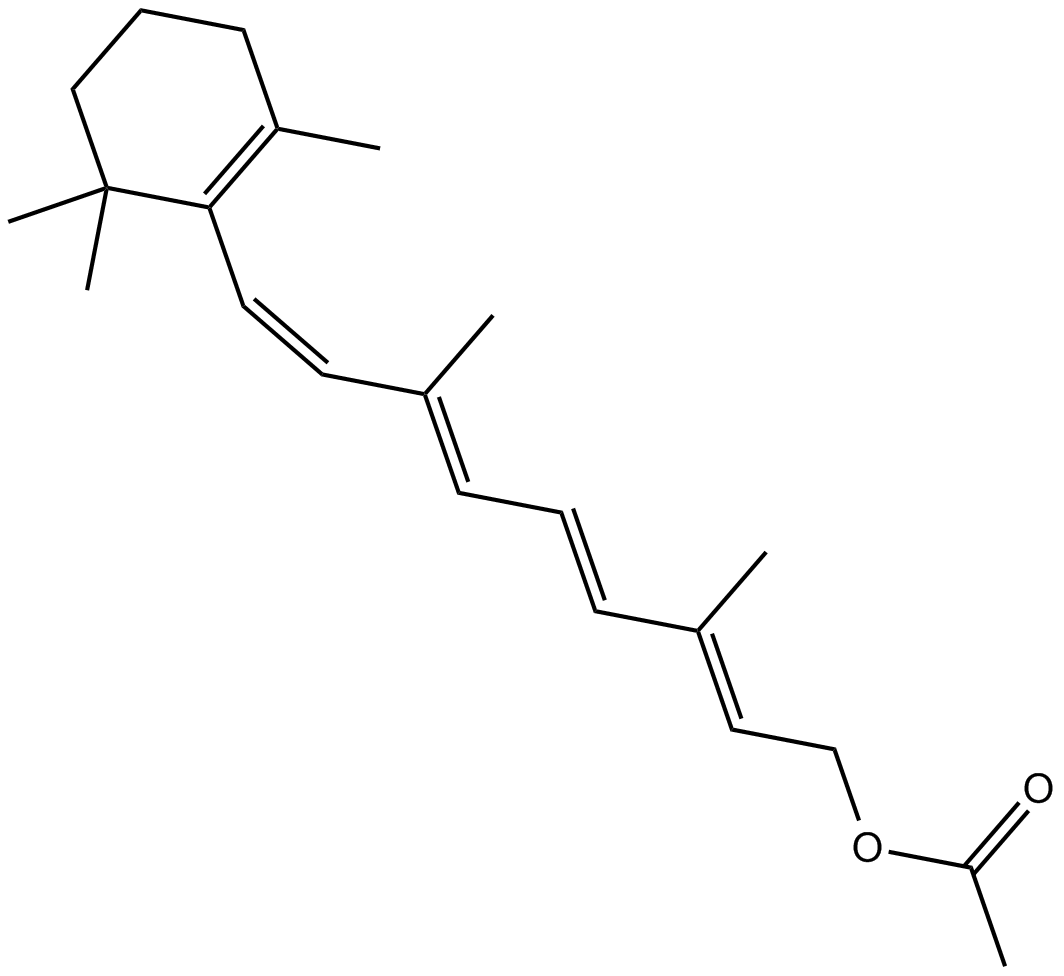Vitamin A Acetate (Synonyms: NSC 122045, NSC 122760, Ro 1-5275, Vitamin A Acetate) |
| Catalog No.GC14506 |
Vitamin A Acetate is a synthetic acetate ester form derived from retinol and has potential antineoplastic and chemo preventive activities.
Products are for research use only. Not for human use. We do not sell to patients.

Cas No.: 127-47-9
Sample solution is provided at 25 µL, 10mM.
Vitamin A acetate (also known as retinyl acetate) is a fatty acid ester form of vitamin A with antineoplastic and chemopreventive effect. Retinyl acetate activated retinoid receptor to induce cell differentiation and decrease cell proliferation. It also exhibited immunomodulatory properties and blocks carcinogen-induced neoplastic transformation.
Retinoid receptors mediate retinoids activities and involved in normal growth and development maintenance, immune response and reproduction.
In rat renal glomerular epithelial cells, retinyl acetate modulated growth, morphology, function and cell organization. [1]
By supplementing normal diet with retinyl acetate in newborn CBA mice of lymphoid cells from (CBA X C57BL/10ScSn) F1 hybrids increased the proportion of the T-cell moiety population that generated IL-2. [2] In Sprague-Dawley rats, chemoprotective properties of retinyl acetate and combination of RA with Mel were demonstrated in mammary carcinogenesis activated by DMBA. [3]
References:
[1] Yamada M, Moritoh C, Kawaguchi M, Okigaki T. Growth, morphology, function, and morphogenetic properties of rat renal glomerular epithelial cells in vitro: effects of retinyl acetate. Eur J Cell Biol. 1989 Aug;49(2):252-8.
[2] Malkovský M, Medawar PB, Thatcher DR, Toy J, Hunt R, Rayfield LS, Doré C. Acquired immunological tolerance of foreign cells is impaired by recombinant interleukin 2 or vitamin A acetate. Proc Natl Acad Sci U S A. 1985 Jan;82(2):536-8.
[3] Hlersová E, Ahlers I, Kubatka P, Bojková B, Môciková K, Gajdosová S, Onderková HM. Melatonin and retinyl acetate as chemopreventives in DMBA-induced mammary carcinogenesis in female Sprague-Dawley rats. Folia Biol (Praha). 2000;46(2):69-72.
Average Rating: 5 (Based on Reviews and 1 reference(s) in Google Scholar.)
GLPBIO products are for RESEARCH USE ONLY. Please make sure your review or question is research based.
Required fields are marked with *




















